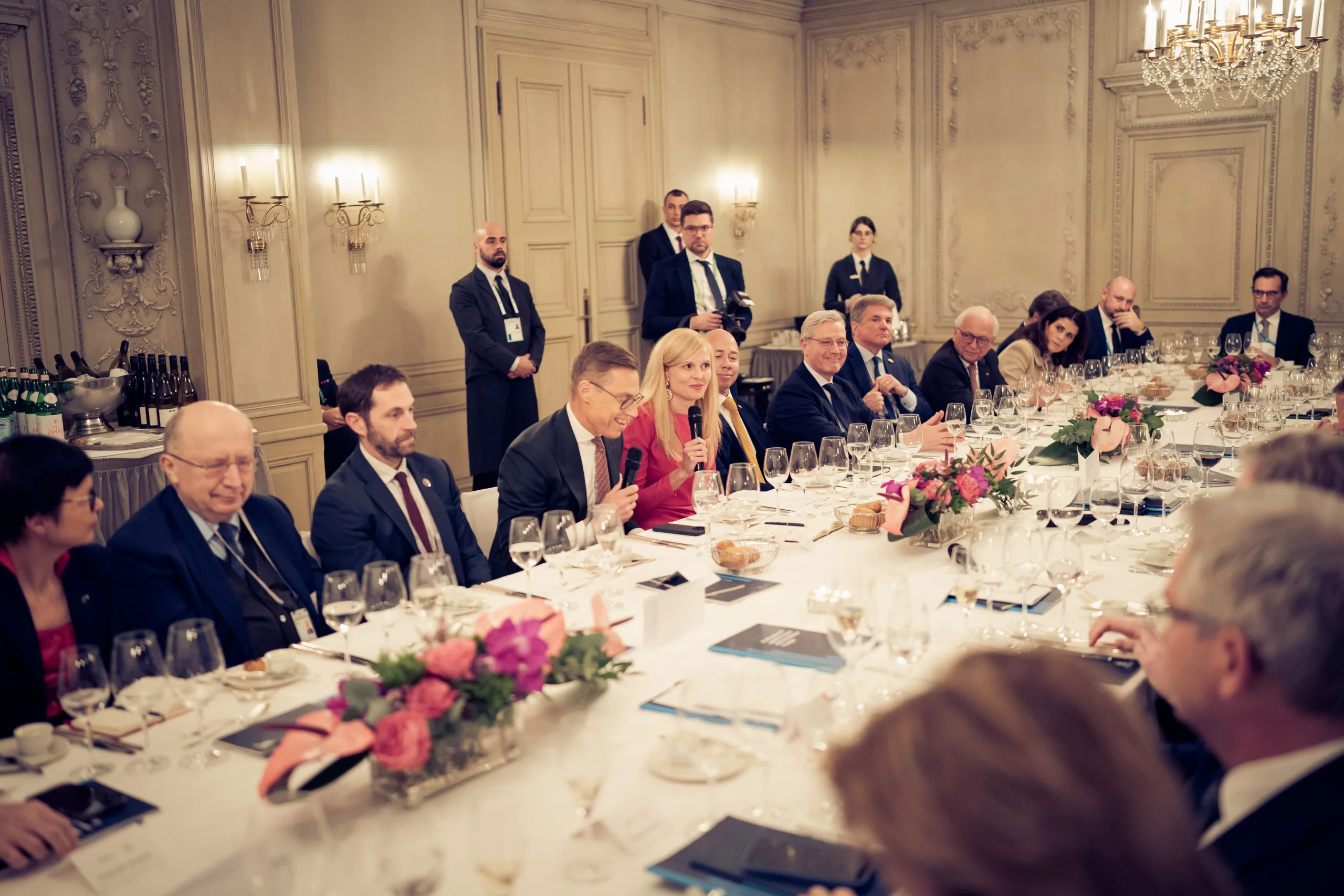WSF2024: Annual Report Presented to Ministers from France, Germany and Poland
WSF2024: Annual Report Presented to Ministers from France, Germany and Poland
On the sidelines of the Warsaw Security Forum, a summit of the Ministers for European Affairs of the Weimar Triangle—Adam Szłapka, Anna Lührmann, and Benjamin Haddad—took place. The ministers were presented with the WSF Report, which this year focused on the Weimar Triangle. The report offers concrete project proposals for Poland, Germany, and France to collaborate on, aiming to address key EU challenges and drive added value for the Union.
The 2024 Warsaw Security Forum Annual Report, entitled “Thinking Europe Anew: Pushing the EU Agenda Forward with the Weimar Triangle” is now available online.
After the successful debut of the 2023 WSF Report, the Warsaw Security Forum has decided to dedicate the 2024 report edition to mapping out the Weimar Triangle initiative between France, Germany and Poland and discussing the format’s role in shaping the future of EU affairs.
As the WSF program takes a closer look at the future of the EU under the theme #ThinkingEuropeAnew, the aspiring role of the presented report is to shape the debate on the cooperation opportunities within the format for a renewed European project.
The main part of the report is divided into three thematic areas: Foreign Policy, Defence, and Energy & State Resilience. Each area identifies two advocacy causes for initiatives that could mobilise cross-party support and serve as foundations for more unified policies in areas where the EU currently lacks capacity and needs stronger agency. As the final recommendation, the report proposes creating an International Weimar Fund, which would galvanise cooperation between the three states and ensure the long-term sustainability of the project.
The report is a result of the work of over 25 French, German and Polish members of parliament and experts, supported by the Casimir Pulaski Foundation’s team.
The Weimar Triangle initiative, which had been overlooked for years, has recently seen a resurgence of interest in Warsaw, Paris, and Berlin. As representatives of three significant, yet diverse EU members align on the most pressing issues, they could serve as a model for others, helping to advance much-needed reforms within the EU. The goal is not to impose a direction, but rather to demonstrate a cooperative approach that could inspire broader consensus across the EU.” – writes Prof. Katarzyna Pisarska, Chair of the Warsaw Security Forum.
To see all 25 contributors to The WSF2024 Annual Report, please click the tab below:

Warsaw Security Forum presence at the Munich Security Conference 2025
At the 2025 Munich Security Conference, the Warsaw Security Forum reaffirmed its role as the leading CEE platform advocating for transatlantic security and unwavering support for Ukraine. With Prof. Katarzyna Pisarska moderating a high-level panel on European aid to Ukraine and hosting an exclusive working dinner on transatlantic relations, WSF played a direct role in shaping the strategic debate. The forum outlined key priorities for European security—strengthening Ukraine, bolstering defense industries, and redefining Europe’s role in global security—reinforcing the message that Europe must lead, or risk being sidelined.
Warsaw Security Forum Partners the Munich Security Conference 2025
It is our pleasure to inform you that the Warsaw Security Forum (WSF) is a partner institution of this year’s prestigious Munich Security Conference (MSC2025), taking place on February 14-16, 2025. As a #MSC2025 partner, we will contribute to the conference’s dynamic agenda by hosting two high-profile events: Panel Discussion: "Security Dividend: European Support for Ukraine" & Closed-Door Dinner: "Thinking Transatlantic Relations Anew: Mapping the New European Security Architecture and Russia Strategy".
Warsaw Security Forum Advocates for Key Security Priorities During High-Level Delegation Visit to Brussels
Last week, representatives of the Warsaw Security Forum (WSF), including Prof. Katarzyna Pisarska and Tomasz Obremski, visited Brussels to present the WSF 2025 initiatives to the newly appointed EU and NATO leadership. The delegation engaged in over 20 high-level meetings with officials from the European Commission, European Council, European Parliament, and NATO Headquarters, focusing on critical global and regional security priorities.



